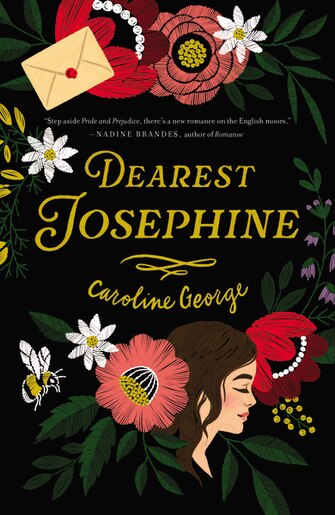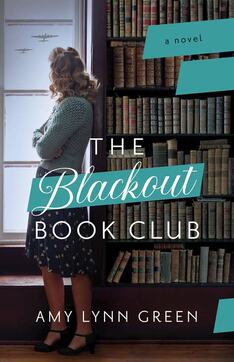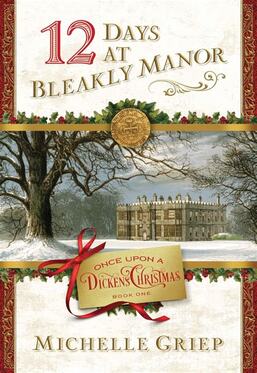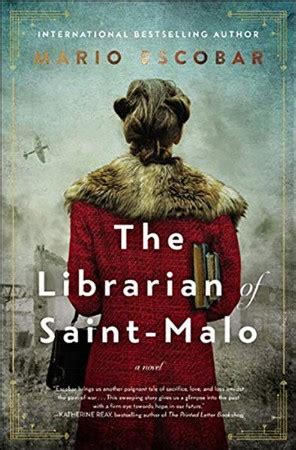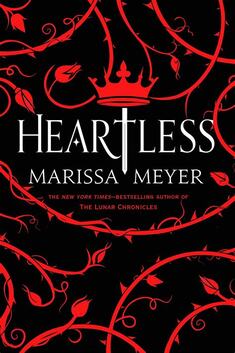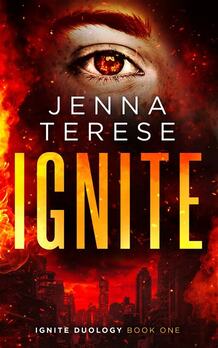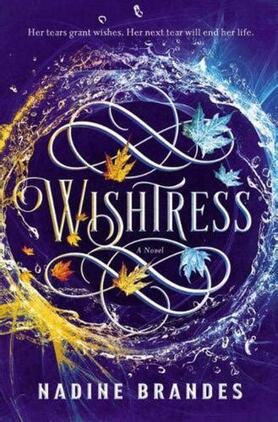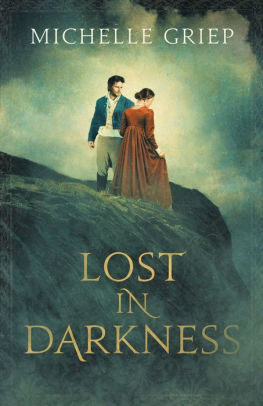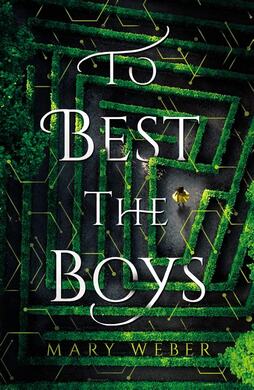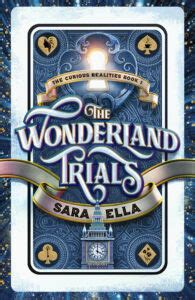|
Summary Love arrives at the most unexpected time . . . 1821: Elias Roch has ghastly luck with women. He met Josephine De Clare once and penned dozens of letters hoping to find her again. 2021: Josie De Clare has questionable taste in boyfriends. The last one nearly ruined her friendship with her best friend. Now, in the wake of her father's death, Josie finds Elias's letters. Suddenly she's falling in love with a guy who lived two hundred years ago. And star-crossed doesn't even begin to cover it . . . Positives Okay. So you probably know romance isn’t really my field of expertise. But this is one of the best romance books I’ve ever read. It’s just so bizarre and weird that I couldn’t help it. I had to know what the explanation was. How did Elias know Josie? And how would their seemingly doomed romance work out? Once you start reading this, you can’t not finish. For the record, I got a late start on my Saturday projects because I had to finish this book. Also, Oliver is wonderful. I think everybody needs an Oliver in their life, and if you don’t believe me, well, I’ll check in with you at the end of the book. This book excellently portrayed an emotional male character—Elias. This is so rarely done well, or done at all, but this book did both. It’s neat because while you relate with both Elias and Josie, you also relate with their friends when they start to worry that they’re in too deep. This book has such a feel to it. You can feel the London culture and English moors with Josie, and when it switches to Elias, you literally feel like you’re reading a Jane Austen novel. So much is left to the imagination in this story, and it is wonderful. But the book isn’t just about romance. It makes it very clear that it’s about something deeper, something that fuels the truest of loves here on earth. (Psst. It’s a Someone.) Negatives The initials “omg” are used frequently in Josie and Faith’s correspondence. It is not made clear whether that “g” stands for God’s name or something like gosh or goodness. I guess you can take it any way you like. Which is nice. Conclusion Dearest Josephine isn’t your average romance. It breaks just about every cliché out there and writes something truly beautiful and memorable.
0 Comments
Summary In 1942, an impulsive promise to her brother before he goes off to the European front puts Avis Montgomery in the unlikely position of head librarian in small-town Maine. Though she has never been much of a reader, when wartime needs threaten to close the library, she invents a book club to keep its doors open. The women she convinces to attend the first meeting couldn't be more different--a wealthy spinster determined to aid the war effort, an exhausted mother looking for a fresh start, and a determined young war worker. At first, the struggles of the home front are all the club members have in common, but over time, the books they choose become more than an escape from the hardships of life and the fear of the U-boat battles that rage just past their shores. As the women face personal challenges and band together in the face of danger, they find they have more in common than they think. But when their growing friendships are tested by secrets of the past and present, they must decide whether depending on each other is worth the cost. Positives This is such a beautiful story because it steps outside the lines of the “norm” in Christian fiction. The members of the blackout book club compose of both male and female, young and old and in-between, married and single, and so many other beautiful differences. Each character is unique and distinct, with their own fears and quirks and motives. Everyone can find themselves in this story. I loved that Avis and Louise had to choose between two good things—turning the library into a daycare or keeping it as it is. More often than not, the choices in life are not between good and bad, but between good and good. A library I know has gone through a similar circumstance and held on, so it really resonated with me. It also made the plot all the more intriguing as they had to choose between two perfectly valid options. Freddy Keats is hands-down my favorite. I’ve just got to say. One of the best things about this story, however, is the portrayal of abuse through Martina’s story. The depictions are spot-on. It truly steps into the shoes of someone who has suffered or is suffering these things. Amy Lynn Green has depicted exactly what it feels like to be in that situation and brought light into the dark, while not avoiding the hard. The notes from the book club gave a little nod towards the style of her debut epistolary novel Things We Didn’t Say and I loved it. I also love that the novel comes with the list of books the book club read. It was so fun seeing each characters’ reaction to the different classics they read. This story is a tribute to readers past, present, and future, who have found the indescribable value of reading and sharing what you’ve read. Negatives None. Conclusion This book is the perfect read for a book club, blackout or otherwise. Not just book clubs, though—libraries and readers and anyone, really. Because anyone belongs in this book club. Summary A mysterious invitation to spend Christmas at an English manor home may bring danger...and love? England, 1851: When Clara Chapman receives an intriguing invitation to spend Christmas at an English manor home, she is hesitant yet feels compelled to attend—for if she remains the duration of the twelve-day celebration, she is promised a sum of five hundred pounds. But is she walking into danger? It appears so, especially when she comes face to face with one of the other guests—her former fiancé, Benjamin Lane. Imprisoned unjustly, Ben wants revenge on whoever stole his honor. When he’s given the chance to gain his freedom, he jumps at it—and is faced with the anger of the woman he stood up at the altar. Brought together under mysterious circumstances, Clara and Ben discover that what they’ve been striving for isn’t what ultimately matters. What matters most is what Christmas is all about . . . love. Positives This is my top favorite Christmas read (right next to Catching Christmas by Terri Blackstock). I read it every year at some point during the Christmas season. I think the main reason that it’s worked its way so thoroughly into my affections is both the premise and the way it carries that premise out. The premise is so creative and holds my attention so naturally. Who wouldn’t want to read about a group of completely unrelated people basically playing Survivor in an old English manor where one of them seems to be a murderer and someone’s always watching them? It delivers on every promise it makes and I couldn’t turn the pages fast enough—yet was sorry when it was over. Oh, and that group of completely unrelated people? The author aced their personalities and interactions. Each one has something distinct and unique about them, something undeniably quirky. And getting even just two of them together promises a good show. She used tension and differences in personality to their fullest potential. But they all have solid goals as well, and for most of them, you sincerely hope they all get what they want, even as you know that only one of them can. But who will it be? And what will become of those who don't get what they need/want? The author’s prose is gorgeous. This book really does feel like a step back in time. The words she uses all lend that classic, distinctly English feel to it while still being an accessible read. Negatives None. Conclusion Twelve Days at Bleakly Manor is a Christmas read worth returning to every year. Everything about it just has the feel of reading a cozy mystery with a Christmas classic playing in the background and snow falling outside. Summary Libraries are being ransacked. France is torn apart by war. A French librarian is determined to resist. Told through smuggled letters to an author, an ordinary librarian describes the brutal Nazi occupation of her small coastal village and the extraordinary measures she takes to fight back. Saint-Malo, France: August 1939. Jocelyn and Antoine are childhood sweethearts, but just after they marry, Antoine is drafted to fight against Germany. As World War II rages, Jocelyn uses her position as a librarian in her town of Saint-Malo to comfort and encourage her community with books. Jocelyn begins to write secret letters smuggled to a famous Parisian author, telling her story in the hope that it will someday reach the outside world. France falls and the Nazis occupy Jocelyn's town, turning it into a fortress. The townspeople try passive resistance, but the German commander ruthlessly begins to destroy part of the city's libraries. Books deemed unsuitable by the Nazis are burnt or stolen, and priceless knowledge is lost. Risking arrest and even her life, Jocelyn manages to hide some of the books while desperately waiting to receive news from her husband Antoine, now a prisoner in a German camp. Jocelyn's mission unfolds in her letters: to protect the people of Saint-Malo and the books they hold so dear. Mario Escobar brings to life the occupied city in sweeping and romantic prose, re-creating the history of those who sacrificed all to care for the people they loved. Positives This is a beautiful story that went none of the places that I expected it to. It rejected most tidy standards for the historical novel market, particularly in Christian fiction, and told a powerful story regardless of where it led. It doesn’t take the easy way out, but rather presents a meaningful picture of reality. (This story is also based on true events as well, which adds a whole new layer to it.) I was curious going in when I noticed it was a female lead written by a male author. (Not anything against male authors, but I had just come off of a very poorly written novel by a male author who hadn’t done his research.) Mario Escobar did an amazing job keeping the thoughts and perspectives true to female experience. Much applause. Plus, can I just say how cool it was when they would talk about Spain and such, and to know that this guy actually knows what he’s talking about, lives it day in and day out? I felt like it added such a neat element to the story. I’d love to see more authors of different ethnicities telling their stories in the Christian fiction market. Negatives This book does include infrequent language (four instances total, three of which appear in one chapter, Chapter 5 to be specific). I found the book at my church library where the words had been inked out. Due to it being told in a letter format, I didn’t feel like I really got in Jocelyn’s head or really got to know her. I was reading a compelling story, to be sure, but I didn’t have a connection to the characters. I would have loved to see something more along the lines of Amy Lynn Green’s Things We Didn’t Say, which does a fabulous job connecting the reader to the character despite being told through letters. Conclusion What The Librarian of Saint-Malo lacks in character connection, it makes up for in powerful story. Summary Long before she was the terror of Wonderland, she was just a girl who wanted to fall in love. Catherine may be one of the most desired girls in Wonderland, and a favorite of the unmarried King of Hearts, but her interests lie elsewhere. A talented baker, all she wants is to open a shop with her best friend. But according to her mother, such a goal is unthinkable for the young woman who could be the next queen. Then Cath meets Jest, the handsome and mysterious court joker. For the first time, she feels the pull of true attraction. At the risk of offending the king and infuriating her parents, she and Jest enter into an intense, secret courtship. Cath is determined to define her own destiny and fall in love on her terms. But in a land thriving with magic, madness, and monsters, fate has other plans. Positives It’s rare for the actual writing to grab me quite like this. I was so immersed in Cath’s head. Every comparison sounded so natural, exactly the way that she would describe it or see things. The prose was top notch. Some of the plot twists were a bit easy to figure out, but I think that worked to the book's benefit. Rather than shocking me when the truth came out, it built that suspense and yes, a little bit of dread as I waited for the truth to be revealed in all its monstrosity. I have read very few negative-arc stories before, so I was very curious going into this one. Mainly because Marissa Meyer did such a good job getting me into Cath’s head, I almost didn’t realize what was happening. Until halfway through the book I suddenly jerked to attention and realized how selfish Cath was being. Looking back, I could trace the slow evolution all the way back to the beginning. No good person in this story is completely good. And no bad person is completely bad. Even Jest (who next to Mary Ann was probably the most noble character in the story) has his undeniably selfish moments. Jest and Cath are brilliantly contrasted to each other. We watch Jest struggle to overcome his selfish tendencies, even though he certainly slips up at times. Meanwhile, we watch Cath become more and more consumed with what she wants, what she thinks will make her happy. And when she is unable to get it, she blames those around her—some justly, but eventually more and more unjustly—for her unhappiness. It balanced this all perfectly with my sympathy to Cath, hoping that the likable girl from chapter one would somehow open her eyes and avoid her inevitable end. Was any of this Cath’s fault at all? Was it those who made her so miserable—her abusive parents, for starters? Or was it her own subtle selfishness? Heartless forced me to consider my own life and where I might be more like Cath than I’d like to think. A negative-arc story, while not always quite as enjoyable to read, has a unique power in that sense. One more quick note before I move on is that this book brilliantly handles the topic of body-shaming and food-shaming. While it may not offer much of a happy ending for those who struggle with it, it does illustrate how hurtful these words (and other words) can be, an important and timeless thing to hear. Negatives This is a negative-arc story, otherwise known as a tragedy. You have been warned. Please also note that while it is clean, this is also not an explicitly Christian book, although it does have healthy messages. Conclusion Heartless is a tragic tale, one that might prove too bitter to swallow. But if you stop and savor a while, you might be subjected to some interesting flavors you wouldn’t have encountered otherwise. Summary What if superhumans weren't considered heroes? When Scarlett Marley is attacked by an illegal super with fire powers, she doesn’t get burned, but now she has a fire-like glow flickering in her eyes. With superpowers criminalized, she has no choice but to turn herself over to the Superhuman Containment Facility, or risk hurting everyone she loves. Her normal life seems lost forever, until she is selected to be one of the first to receive the experimental cure to destroy her powers. In exchange, she must first complete one mission: Infiltrate and capture one of the largest gangs of supers in the remains of once-great Rapid City. With the cure and all her future at stake, Scarlett is prepared to do whatever it takes to bring these criminals to justice so she can return to her family. But this gang and their leader, Rez, aren’t what everyone says, and Scarlett begins to question everything she was ever told about the SCF and the fire flowing in her veins. The cure is her only hope for returning her life to what it was before, but is that life worth returning to after all? Positives On a not really positive or negative note, the book is very differently paced than what I was expecting. It is marketed to appeal to fans of the MCU films, and while it does, it is a much more slow and thoughtful ride. While a Marvel film can be very thoughtful, Ignite is much less focused on the action and more focused on inter-character relationships and what’s going on inside their heads. While as I’ll mention below, sometimes that thoughtfulness took up a lot of page time, I can’t really blame it. The different characters and their motivations are so well thought out, it’s incredible. They react in unexpected ways that still make perfect sense with where they’re coming from. Ares was my favorite character, hands down. While ultimately, the author decided he was not the right character to tell this story, I would have loved to see a version of this story from his perspective. His conflict with his father seems like it could be rife with potential. The conflict with superhumans not being seen as “people” also has a lot of potential to become a powerful allegory for modern judgements and prejudices as well. It was unpacked very thoughtfully in this installment, and I’m looking forward to seeing how it unfolds. Negatives Some of the scenes did get to feeling repetitive. There were quite a few scenes of them going for their “recess” at the compound. While these did become important at the end of the story, it took quite a few repetitions to get there. Other events did seem to have the same things happening over and over again. We also spent a lot of time in Scarlett’s head. I get that we were supposed to, she’s the main character. But there was a lot of time where she was just thinking and nothing else was happening in the scene. That is the one and only weakness I could find with this book—just a few too many “filler” scenes without much happening. Conclusion Ignite is a different installment in the superhero genre. One where perhaps we slow down and think more than rush into battle. And that’s okay. Summary Her tears grant wishes. Her next tear will end her life. She didn’t ask to be the Wishtress. Myrthe was born with the ability to turn her tears into wishes. But when a granted wish goes wrong, she is cursed: the next tear she sheds will kill her. She must travel to the Well to break the curse before it can claim her life—and before the king’s militairen find her. To survive the journey, Myrthe must harden her heart to keep herself from crying even a single tear. He can stop time with a snap of his fingers. Bastiaan’s powerful—and rare—Talent came in handy when he kidnapped the old king. Now the new king has a job for him: find the Wishtress and deliver her to the schloss. But Bastiaan needs a wish of his own. He gains Myrthe’s trust by promising to take her to the Well, but once he gets what he needs, he’ll turn her in. As long as his growing feelings for the girl with a stone heart don’t compromise him. Their quest can end only one way: with her death. Everyone seems to need a wish—the king, Myrthe’s cousin, the boy she thinks she loves. And they’re ready to bully, beg, and betray her for it. No one knows that to grant even one wish, Myrthe would pay with her life. And if she tells them about the curse . . . they’ll just kill her anyway. Positives This quite possibly was my most anticipated title of this year. It’s been three years since Romanov came out, two years since I read it for the first time, so I was beyond excited when Nadine announced a new book. As you can see, Wishtress doesn’t quite run in the same vein as Fawkes and Romanov, so I was curious to see what she would do with it. It. Is. Amazing. First off, can you tell me the last time you’ve seen a fantasy world built in Dutch/Norweigan culture? The fantasy world was wildly creative without being overwhelming to immerse myself in. The allegory is just as strong in this novel as in her previous novels, and a very timely message. I related so much to her characters—particularly Bastiaan who’s just trying to protect Runt and do all the right things that somehow keep going wrong. It delivers a message about grace that we’ve probably heard a million times before—but in the lenses of this story, it’s something new and fresh and the true impact really hits home. I binge read most of this on a Saturday evening. I could NOT stop reading. These characters never really got a break, did they? Every time I thought it was as bad as it was going to get . . . Myrthe is a really interesting addition. Emotional women in fiction have gotten a bad rap, just because they have been really horribly written in the past. This book illustrated a little bit of that bad rap, that expectation to be strong and exactly what everyone else expects us to be. And then it showed us a heroine who rebelled against that, which is an incredibly empowering thing. And Runt. Oh my goodness, Runt. If you do not love Runt . . . then I don’t even know what to say. THAT ENDING. I mean, it’s satisfying, and it’s fun to imagine your own ending, but still . . . I really hope that means there’s a sequel in the works? Please? And last but not least . . . the cover! Isn't it gorgeous? Negatives None. Conclusion Wishtress is easily one of the best books I’ve read this year. It reminded me of what grace really is in a fresh new way. And plus, it’s just a good story, the way stories should be. Summary Even if there be monsters, there is none so fierce as that which resides in man’s own heart. Travel writer Amelia Balfour’s dream of touring Egypt is halted when she receives news of a revolutionary new surgery for her grotesquely disfigured brother. This could change everything, and it does . . . in the worst possible way. Surgeon Graham Lambert has suspicions about the doctor he’s gone into practice with, but he can’t stop him from operating on Amelia’s brother. Will he be too late to prevent the man’s death? Or to reveal his true feelings for Amelia before she sails to Cairo? Positives The author has a way of writing that makes you feel like you’re reading a classic. You truly feel like you’re in Regency England—and yet her prose is still understandable and down to earth. This story is wildly creative. I mean, really, how many Frankenstein retellings are there, period, much less on the Christian market? It’s the kind of book that sticks out and sticks with you. The author is also a master of suspense. I couldn’t wait to find out what happened and actually noticed my heart racing at certain moments. The thing is, it’s not even like it’s an action packed story. It has its fair share, yes, but she managed to make me feel the suspense in everyday encounters, too. The Scripture and theme are woven in without being pushy or overbearing. I automatically cringed when the characters were set up for a conversion arc, just because it is rarely done well. This novel handles it in a realistic and very-not-cheesy way. Negatives I only had one negative thing to say about this book, but it was a big enough one that I debated whether or not to write this review. I try not to post negative reviews of a book unless there is something truly wrong with it (because it’s just mean to drag a good book down because it wasn’t your jam. Negative reviews hurt authors!). This was a story that went down really well . . . but after an hour or so to think, I realized it had some major flaws in its representation of disabled persons. I searched the book on numerous book review sites and didn’t see anyone talking about this problem, so I decided to go ahead and write the review. Please note this is NOT me discounting the book. I highly, highly doubt the author ever intended to present these messages. Sometimes we writers try to represent something well, and we just don’t get it right. We learn from our mistakes. And this is still a lovely book and an excellent read. There is no way to discuss this without spoilers, so if you’re not interested in spoilers, please skip to the conclusion. As you learn from the back cover copy, the main character (Amelia’s) brother, Colin, is facially disfigured. He plays the role of the monster in the retelling. (You can even see the token “grotesquely disfigured” line in the back cover copy above. That’s a little bit of a cringey casting anyway—people with facial disfigurement are already cast as villains/monsters all the time, and who really wants to hear that they’re a monster all the time? But then the entire story revolves around Colin believing he’s a monster, everyone else believing he’s a monster, and everyone desperately pursuing a surgery that will make him “normal.” While Colin eventually makes peace with himself, most of the other characters do not. In general, it feels as if they’re saying “we love you just the way you are, but if you could fix yourself, I mean, we won’t argue” feel. Major spoilers begin here, so seriously. In the third quarter of the book, Colin does unwillingly go through with the surgery, under pressure from the other characters. It goes wrong and causes injury to Colin’s brain, leaving him mentally disabled. As soon as this happens, the plot immediately shifts to Amelia and everyone around her worrying about “the pressure.” How will Amelia ever handle it all? It’s such a burden to bear. She will never be able to travel again. It’s made a big deal that Colin is holding her back from her dreams and she’s having to sacrifice everything for him and he’s a terrible burden. Is caring for a mentally disabled person a burden? Pressure? Stress? I imagine so. I can’t imagine the strength of some of these families. But this just stripped all the value from Colin—like he was good for nothing because he had a brain injury. Shortly thereafter, Colin dies in the climax. First off, it was just entirely too convenient. Solved the problem so Amelia was no longer beholden to him. It seemed like a cheap way out. We get a chapter or two of some very poignant grief—and then everyone just moves on. Amelia gets engaged (Graham conveniently proposed now that Colin’s out of the way) and is back to traveling to Egypt and living her best life. Never been happier. Because Colin’s out of the way. All of this unintentionally sent the message that physically or mentally disabled persons are seen as monsters and are horrible burdens that hold those they love back from their best lives and selves. I couldn’t help but think about how people with these disabilities or families that support them would feel reading this story. I really wish Colin would have lived. I wish I could have gotten to meet Colin as he was with his injury. I wish Graham and Amelia would have committed to care for him and value him no matter what. I wish they would have acknowledged the challenges, yes, but also the blessings. I would have liked to see them have to make some hard choices. I wish Colin had been valued, not forced to go through with that surgery after all. I wish I could have seen Colin being allowed to be himself and overcoming the daily challenges of living with a disability. Please remember, I do not believe for a second that this message was ever this author’s intention. The book otherwise was wildly creative and a solid read, and I’m still eagerly awaiting more in the series. Honestly, I think the rest of the series could be a wonderful chance to better represent disabilities in the future. This particular story just could have benefited from some time and maybe some more sensitivity readers. Conclusion If you’re looking for a fall read with just the right amount of spooky, Lost in Darkness is it. While marred by some poor representation of disabilities, maybe it will serve to spark some more thought about the real life people who face these challenges every day. Summary The task is simple: Don a disguise. Survive the labyrinth . . . Best the boys. Every year for the past fifty-four years, the residents of Pinsbury Port have received a mysterious letter inviting all eligible-aged boys to compete for an esteemed scholarship to the all-male Stemwick University. The poorer residents look to see if their names are on the list. The wealthier look to see how likely their sons are to survive. And Rhen Tellur opens it to see if she can derive which substances the ink and parchment are created from, using her father’s microscope. In the province of Caldon, where women train in wifely duties and men pursue collegiate education, sixteen-year-old Rhen Tellur wants nothing more than to become a scientist. As the poor of her seaside town fall prey to a deadly disease, she and her father work desperately to find a cure. But when her mum succumbs to it as well? Rhen decides to take the future into her own hands—through the annual all-male scholarship competition. With her cousin, Seleni, by her side, the girls don disguises and enter Mr. Holm’s labyrinth, to best the boys and claim the scholarship prize. Except not everyone is ready for a girl who doesn’t know her place. And not everyone survives the deadly maze. Welcome to the labyrinth. Positives To Best the Boys was, for me, a book of contradictions. This was perhaps one of the first times that I had an aspect of a story that I liked and didn’t like at the same time. Ultimately, I think that’s a wonderful thing. This book authentically shared some ideas to think on and succeeded in getting me to think about it. So I’ll present my ideas below, but I highly encourage others to read it and see what conclusions you draw. I was ecstatic to see sexism being dealt with in a Christian book. It was one of the things that drew me to it. I am in no way saying women are better than men or that all men are evil. Men and women are created as equal in Christ and there are good and bad examples in any gender. The fact is, while our world has come a long way, sexism is still a thing, and so many women are coming face to face with it every day. This book comes alongside girls and women who have been told they have no place to speak, that they are less than, and that they are only good for whatever they can do. I found it to be a relatable and beautiful thing. You could tell that the author made an effort to not make all her men sexist jerks. Whether or not you like those characters will probably depend on your tastes, but the extra effort went a long way. The third quarter of the book blew me away. The series of tests inside the maze—I couldn’t put it down! It was also neat to see a female-empowering book that has to do with math and science. While I’m not a math and science girl myself, there are plenty of us who are, and the representation was much overdue. Speaking of representation, a number of disabilities are included in the story—but the story isn’t really about them. (For instance, Rhen has dyslexia, but the whole book isn’t about her bemoaning her dyslexia and trying to get rid of it.) This approach helps to normalize disabilities and to show that those who have them are people just like everyone else. The idea of "I belong to me" was an interesting one. I do believe it's something girls need to hear and is a healthy thing to learn. At first glance, I thought it unnecessarily left God out of the equation. Or did it? The idea of "I have value just because I'm me" automatically prompts the question of Who put that value there. This story never says God's name, but He's in there. Negatives However, those aspects above had a side I wasn’t quite as sure about. Repeat: It made me think, which was wonderful! And I might change my opinions in a couple weeks or months or even years after more thought. Who knows? I feel like this book will stick with me. I was reading along, enjoying the rare YA book where the female protagonist isn’t having romantic feelings for anyone, when WHAM. There Lute was. Don’t get me wrong. I like Lute and all, and I think he was probably necessary to show the “good man” representation of this issue, as well as to show that love/romance/marriage aren’t bad. But could he have done it without being in love with Rhen? A little background. For me personally, I’m not in a book as much for a romance, and I had been really excited about the possibility of a heroine without romance. The back cover copy didn’t indicate a romance, so I got my hopes up. Nothing against Lute and Rhen’s romance, But I just thought this might have been a neat story to overthrow that trope. While the sexism of Rhen’s teammates angered me, and rightfully so, sometimes she was just as mean back. I completely understand—when you’ve been forced to live with that your entire life, you do feel some ugly feelings and sometimes they spill out in ways you don’t want. But honestly, if she had just listened to what Lute was trying to say early in the story and let him explain things, she could have saved herself some trouble. I would have liked to see her progress to having more respect for her teammates, male or female, because she knew what it felt like to be disrespected. But, on the other hand, the book leaves Rhen’s actions mostly to the interpretation of the reader, which is really cool. So honestly, maybe when I go back for a reread, I'll see subtle hints of where she completes that arc. The disabilities in question do serve to normalize it—but otherwise, they don’t really affect the story. (Ben’s Down Syndrome does more than Rhen’s.) Especially in Rhen’s case—a point is made of her having dyslexia in the first couple chapters, but it doesn’t change the way she sees things at all throughout the book (that I saw). Some people may feel this crosses the line from normalizing a disability into just brushing it off. I personally think it could have been used a pinch more and could have had some really interesting effects on the plot. I loved that third quarter, but it was wildly different in pace than the rest of the story. The first two quarters largely center on Rhen’s efforts to cure the disease and navigate society, as well as her plan to enter the labyrinth. Then the third quarter is explosive intense action. And then we’re back to the fourth quarter which is a lot of working on cures, putting pieces together, and more society parties. *cringe* That makes it sound like I hated this book. I didn’t. I thought it was well-written and sensitively thought out. I’d give it five stars just based on how much it made me think. Truly, your opinion on this book is going to depend a lot on your background and personal preferences. This is mine. Conclusion To Best the Boys has made me think through a lot of things in a new light. And for that, it’s a complete success. I highly encourage everyone to read it and draw your own conclusions. Even if your conclusions are different than the author, the thinking time alone is worth its weight in gold. Summary Solve the clues. Face your fears. Survive the Trials. All Alice Liddell wants is to escape her Normal life in Oxford and find the parents who abandoned her ten years ago. But she gets more than she bargained for when her older sister Charlotte is arrested for having the infamous Wonder Gene—the key to unlocking the curious Wonderland Reality. Soon, Alice receives a rather cryptic invitation to play for Team Heart in this year’s annual—and often deadly—Wonderland Trials. Now she has less than twenty-four hours to find her way into Wonderland where nothing is impossible . . . or what it seems. The stakes are raised when she discovers players go missing during the Trials each year. Will she and her team solve the clues and find the missing players? Or will betrayal and distrust win, leaving Alice alone in a world of her own? Follow the White Rabbit into this topsy-turvy fantasy where players become prey, a sip of the wrong tea might as well be poison, and a queen’s ways do not always lead one where they ought to go. Positives Alice was definitely a jog away from some of Sara Ella’s characters in the past. Some of the past heroines have had more stereotypical “girly” interests, and I had a hard time relating sometimes. Alice is a smart, strong girl with her own goals and her own ways of getting around to them. Each of her teammates had unique personalities and vibes as well, and I was constantly wondering who was good and who was bad. She created strong dynamics for each of them, and it was neat to watch those all play out with other characters. I would also like to take this moment to note that Chess Shire is AMAZING. In real life, he’d probably annoy the heck out of me, but on the page, perfection. I’m not normally into the romantic interests very much, so points are due here. For context, I actually hated Disney’s Alice in Wonderland. Still do. I thought it was the dumbest creepiest thing I’d ever seen as a kid. The author did a great job of putting a special new spin on the story. I mean, a dystopian London? How cool is that? The trials had a neat “escape room” feel that I haven’t seen very often in books. And really, there’s just not that many Alice in Wonderland retellings out there. As a very logical girl myself, it was a good reminder that sometimes the best things in life can’t be explained. Negatives None. Oh, wait, I can think of one, um . . . WHERE IS BOOK TWO? WHEN IS IT COMING OUT? Inquiring minds would like to know. Conclusion The Wonderland Trials passed my trial and lived up to all the hype I’d imagined for it before it released. Now if you’ll excuse me, I need to plunge down that nearby rabbit hole in search of the second book. |
Rachel's Reads
Hi there! Rachel again. Check out this section for book reviews and cover reveals of some of my favorites! Archives
June 2023
Categories
All
|
